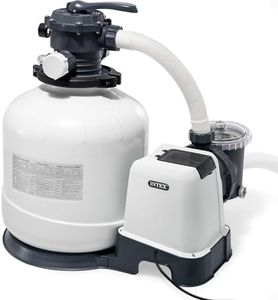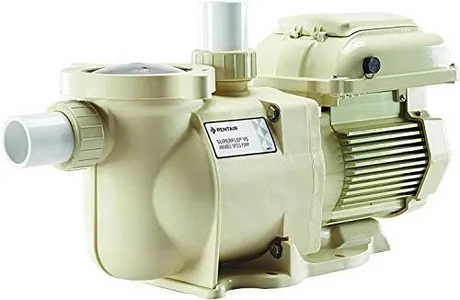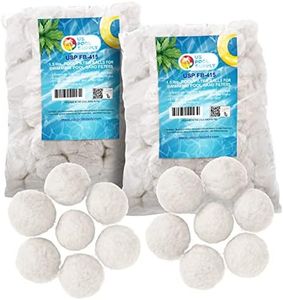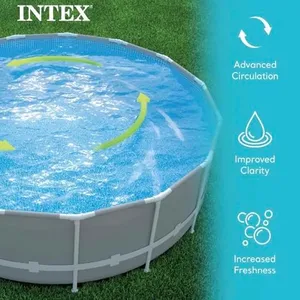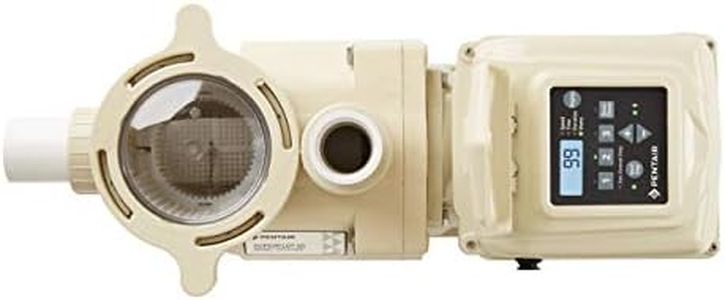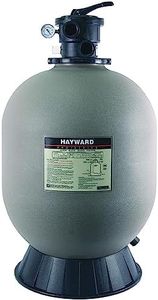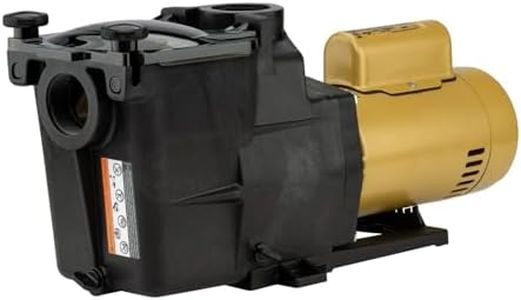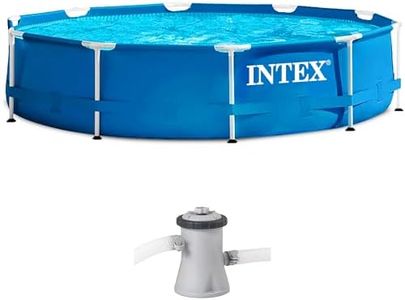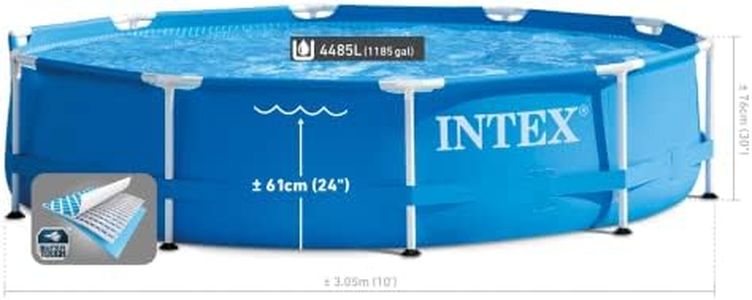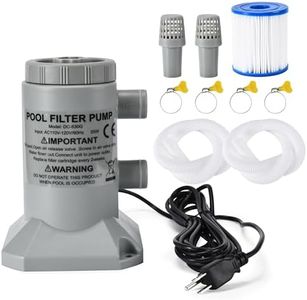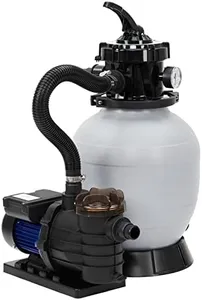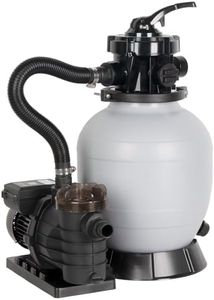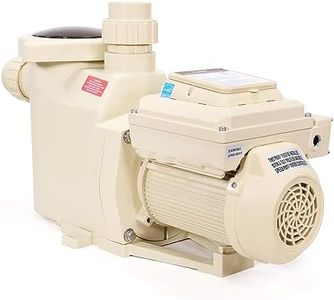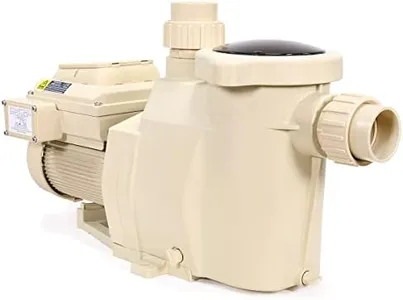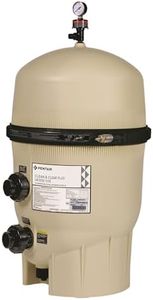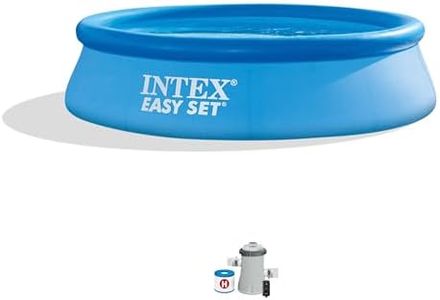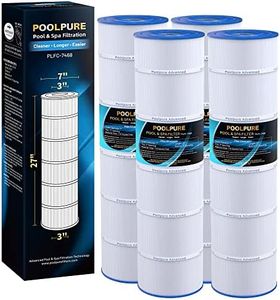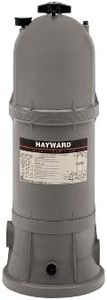10 Best Pool Pumps And Filters 2025 in the United States
Winner
Intex 26651EG 3,000 GPH Above Ground Pool Sand Filter Pump with Automatic Timer
The Intex 26651EG 3,000 GPH Above Ground Pool Sand Filter Pump stands out with a strong pump flow rate of 3,000 gallons per hour, making it suitable for pools up to 19,600 gallons. It operates on 120 volts and is corded electric, ensuring steady performance. One of its key advantages is the HydroAeration Technology, which enhances water circulation, filtration, and clarity, making your pool water cleaner and more enjoyable.
Most important from
21083 reviews
Pentair EC-342001 - SuperFlo VS Variable Speed Pool Pump, 1.5 HP - Limited Warranty
The Pentair EC-342001 SuperFlo VS Variable Speed Pool Pump is designed to offer efficient and versatile performance for in-ground pools. With a 1.5 HP motor, it provides a strong flow rate of up to 112 gallons per minute, which is suitable for medium to large-sized pools. One of its standout features is the variable speed functionality, allowing you to adjust the speed according to your pool's needs, ultimately saving you up to 80% on energy costs.
Most important from
1715 reviews
Top 10 Best Pool Pumps And Filters 2025 in the United States
Winner
9.8 score
Intex 26651EG 3,000 GPH Above Ground Pool Sand Filter Pump with Automatic Timer
Intex 26651EG 3,000 GPH Above Ground Pool Sand Filter Pump with Automatic Timer
Chosen by 1183 this week
Pentair EC-342001 - SuperFlo VS Variable Speed Pool Pump, 1.5 HP - Limited Warranty
Pentair EC-342001 - SuperFlo VS Variable Speed Pool Pump, 1.5 HP - Limited Warranty
Hayward W3SP2607X10 Super Pump Pool Pump, 1 HP
Hayward W3SP2607X10 Super Pump Pool Pump, 1 HP
Pentair EC-160301 Clean and Clear Replacement 420 Square Foot 150 Gallons Per Minute In Ground Swimming Pool Filter Pump, Cartridge Assembly
Pentair EC-160301 Clean and Clear Replacement 420 Square Foot 150 Gallons Per Minute In Ground Swimming Pool Filter Pump, Cartridge Assembly
Our technology thoroughly searches through the online shopping world, reviewing hundreds of sites. We then process and analyze this information, updating in real-time to bring you the latest top-rated products. This way, you always get the best and most current options available.

